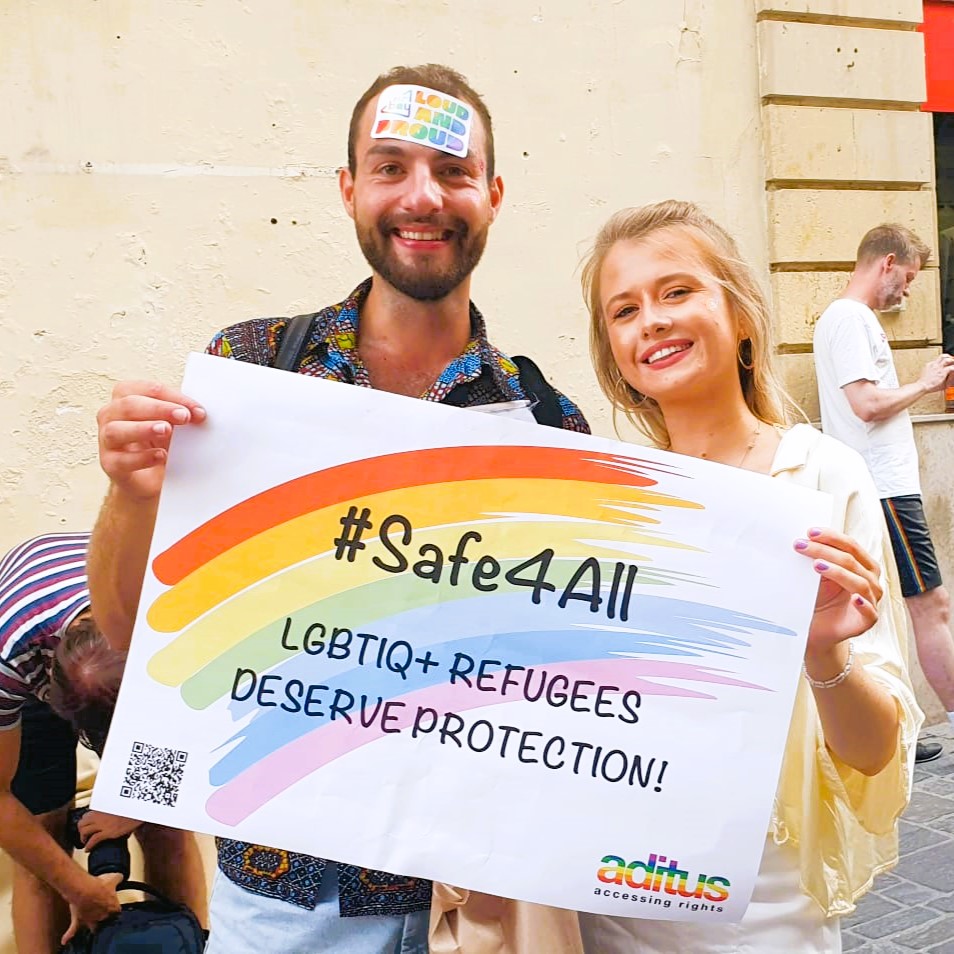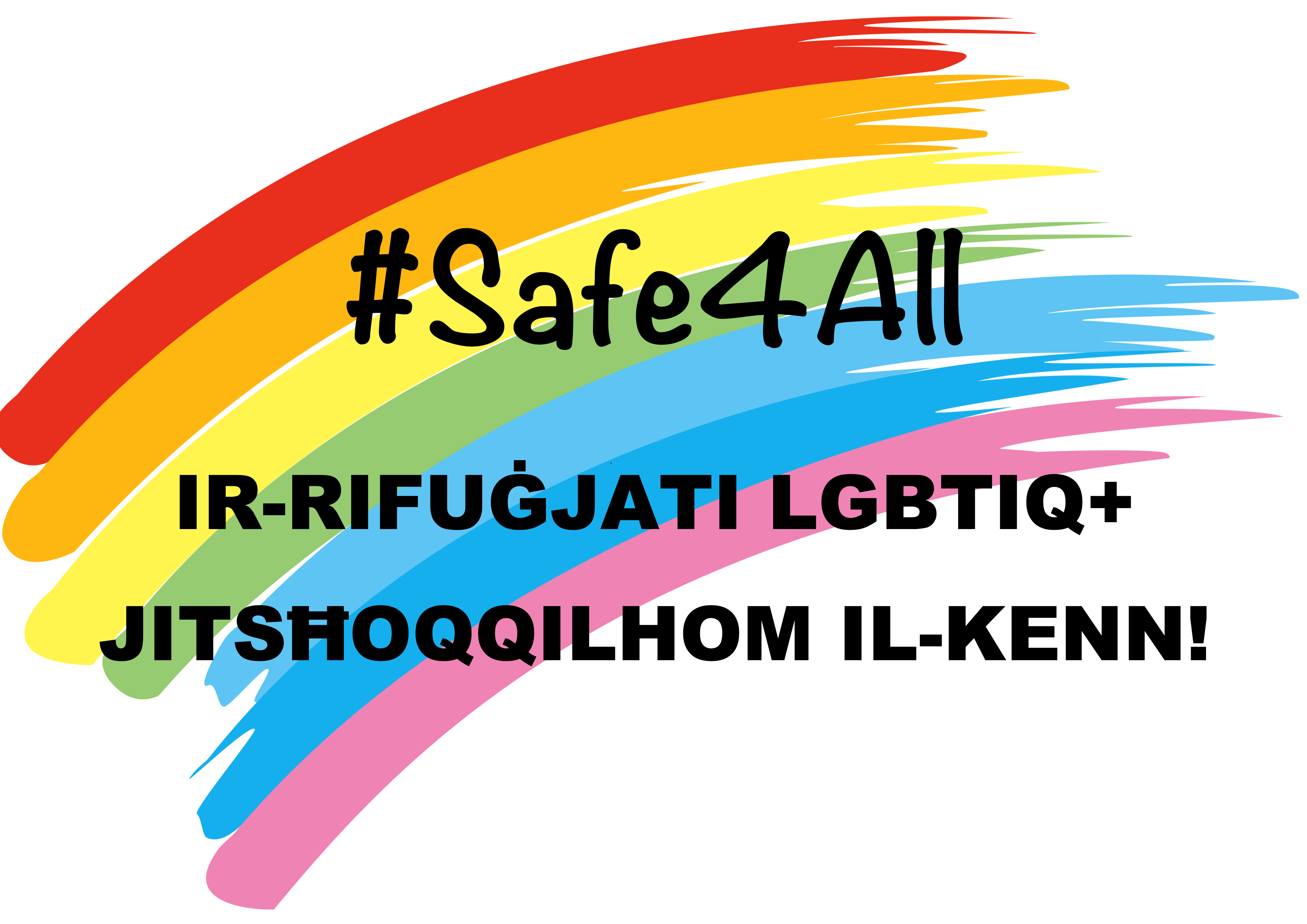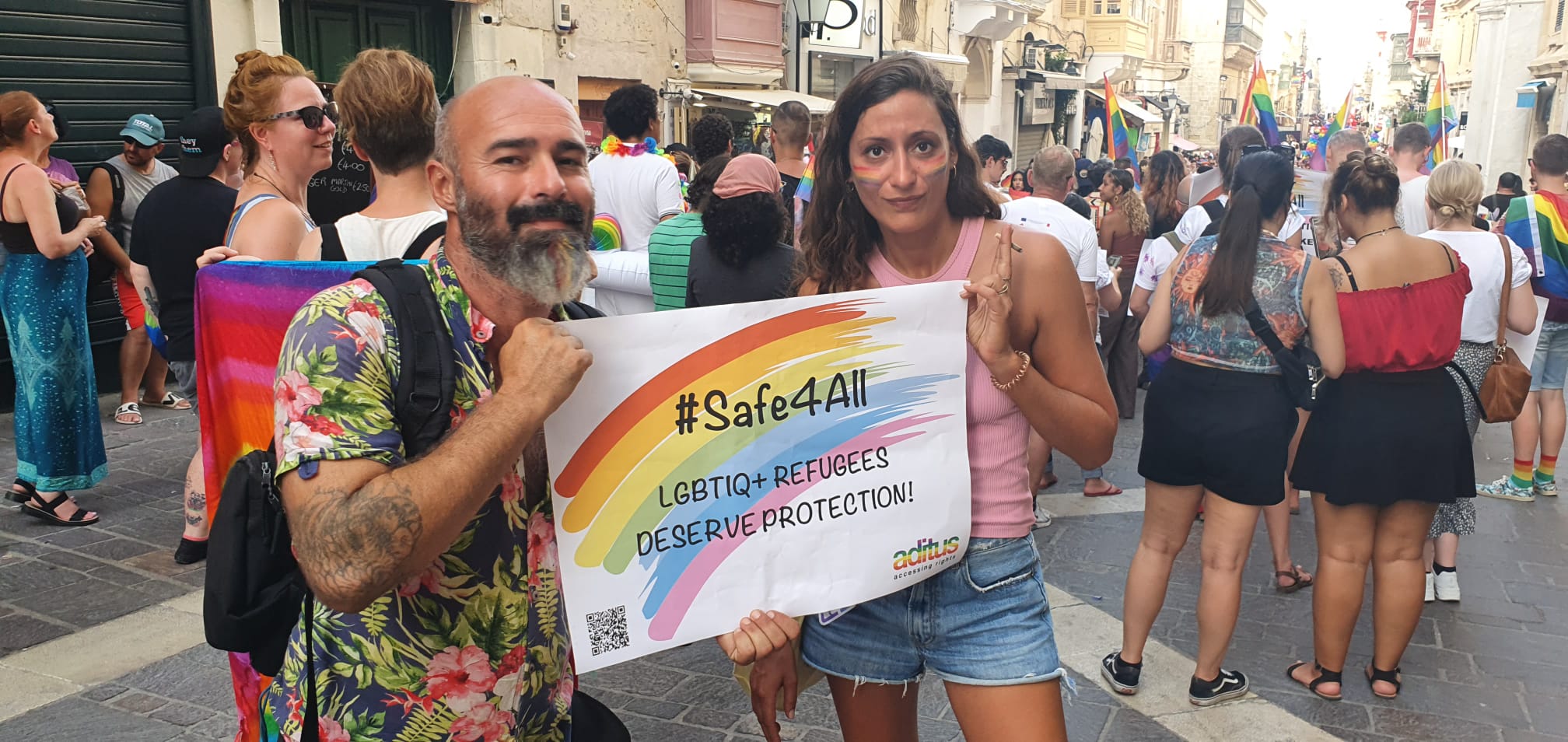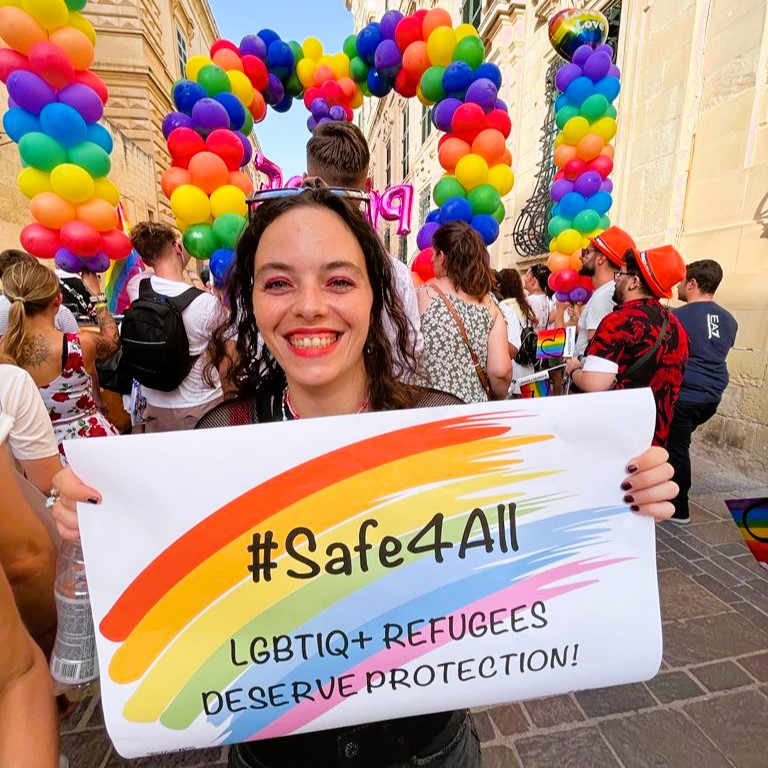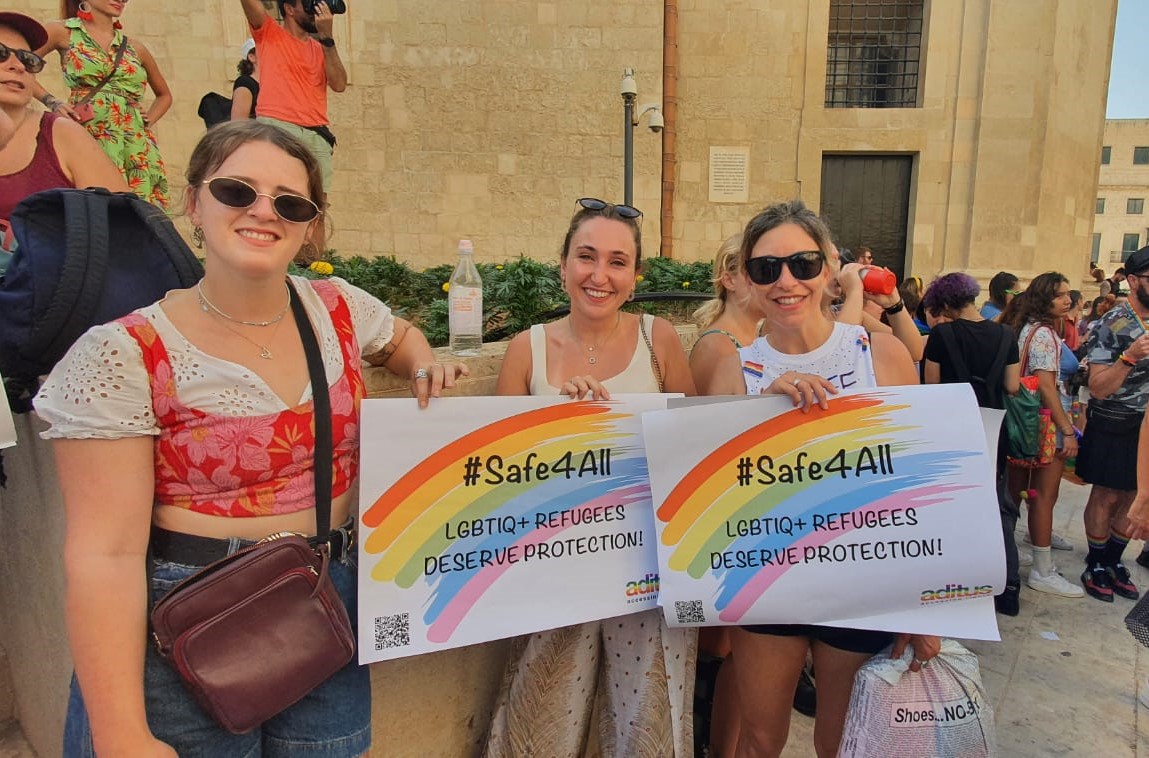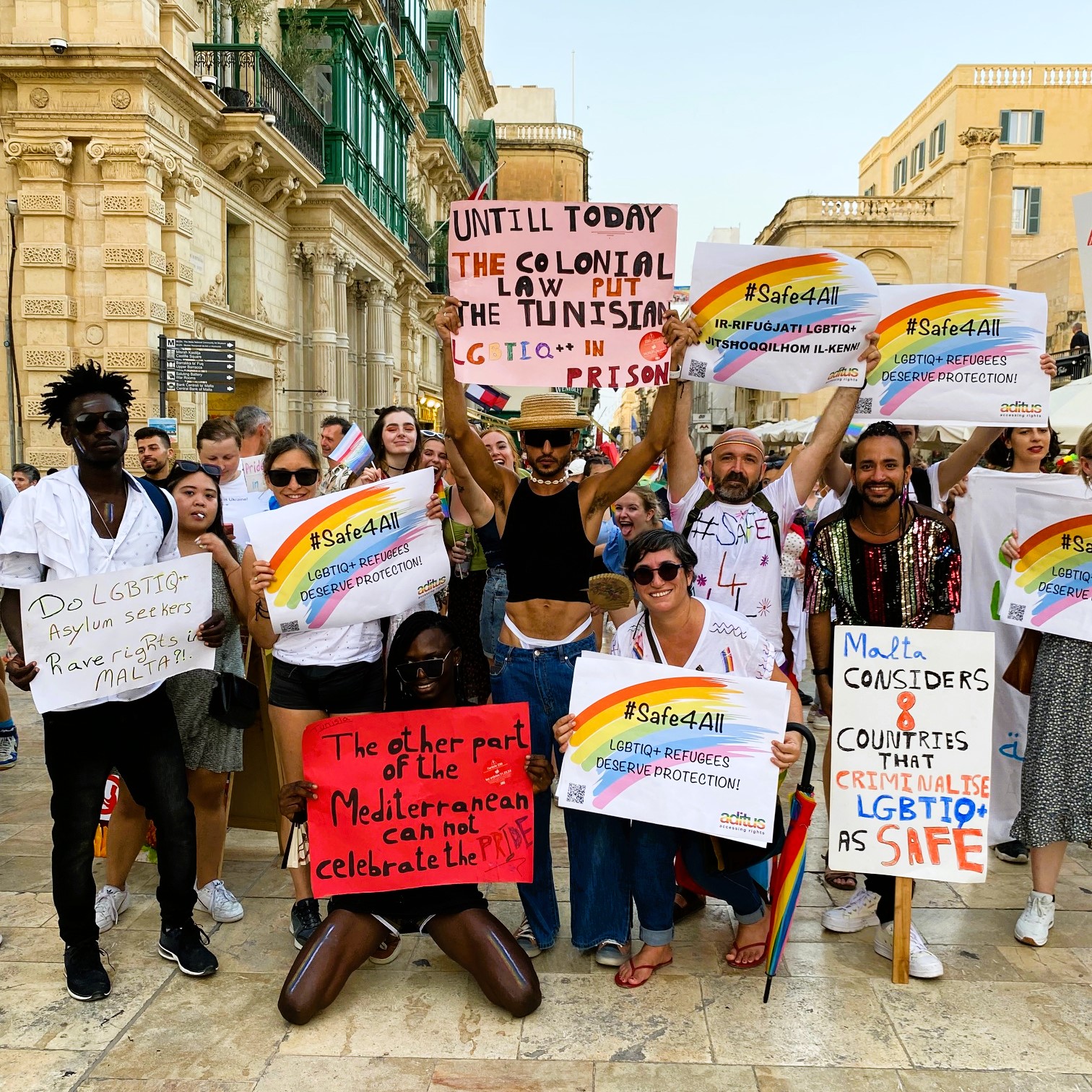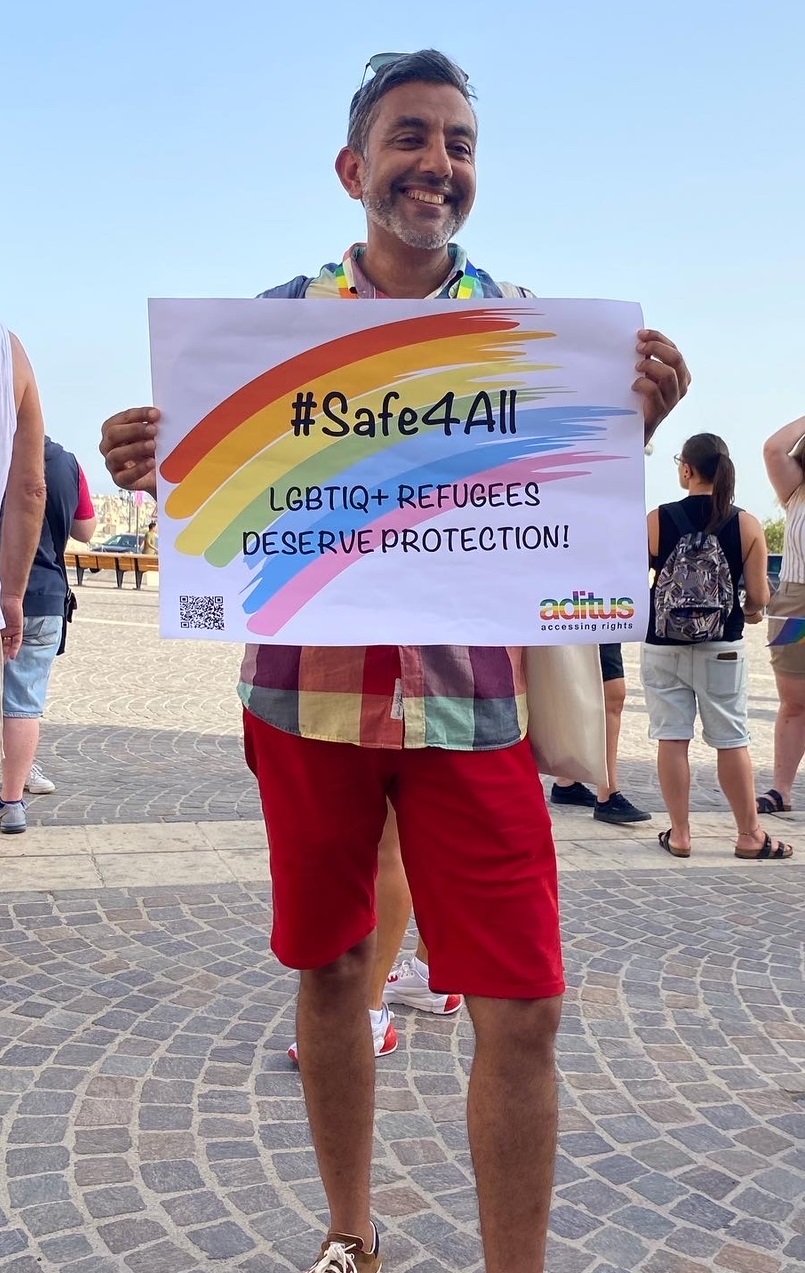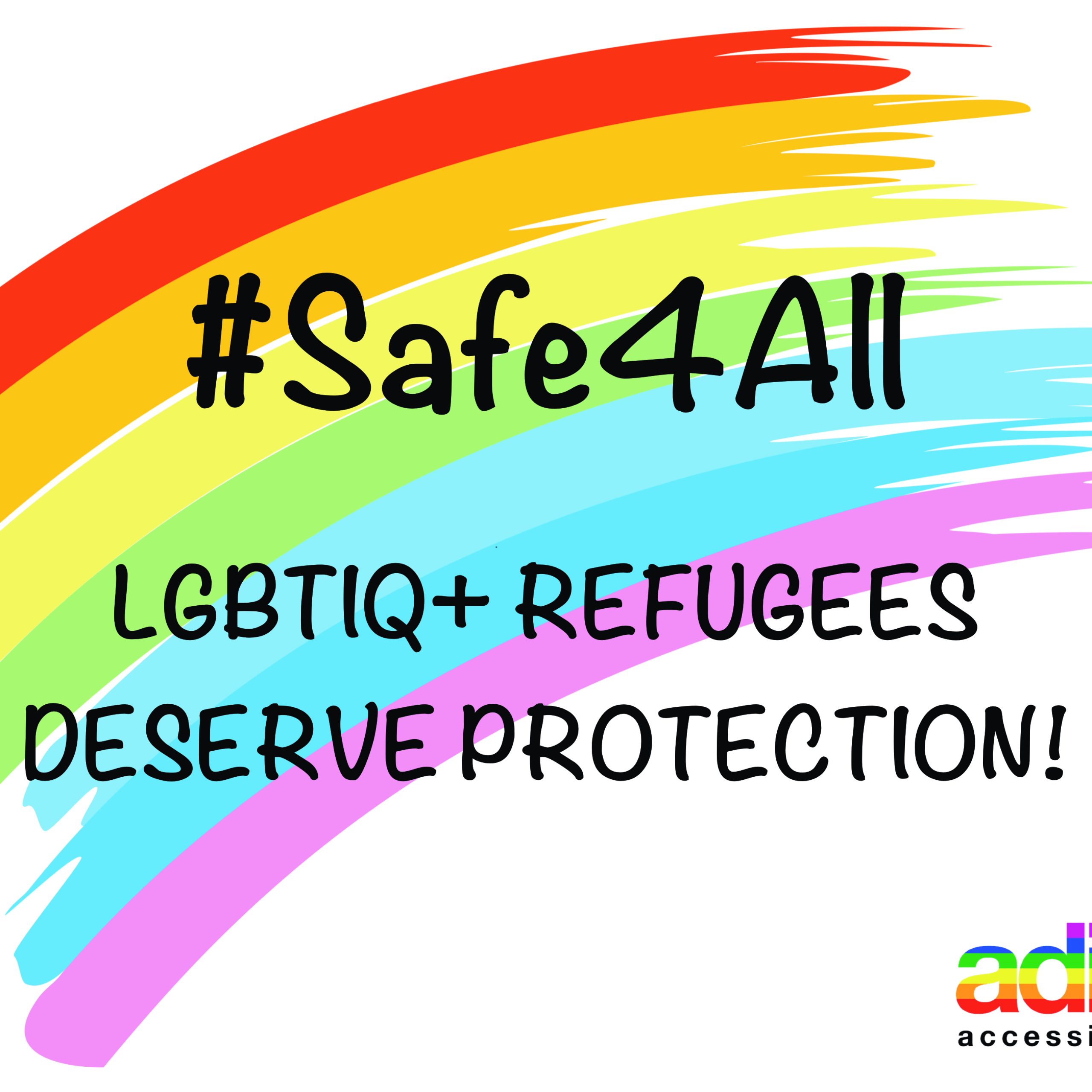Border Criminologies, managed by the Faculty of Law at the University of Oxford, published a guest post by Carla Camilleri, lawyer and the Assistant Director of aditus foundation.
Continue ReadingTag: asylum
#Safe4All: LGBTIQ+ refugees deserve protection
On 10 September we launched the #Safe4All Legal Initiative. The #Safe4 All Legal Initiative is a campaign urging Malta to better protect LGBTIQ+ refugees. It asks Malta to stop declaring as ‘safe’ those countries that currently criminalise LGBTIQ+ identities and/or behaviour.
The campaign, including a Bill to amend Malta’s asylum legislation, was presented to the Equality Parliament Secretary. It will be maintained throughout the coming months as Malta seeks to crown its rainbow glory by hosting EuroPride Valletta 2023.
Visit the campaign’s page for further info, including a touching story of two of our clients.
Pride but not much Protection!
The story of two LGBTIQ+ clients: Ali & Ashraf
Facts
Ali and Ashraf* are two vulnerable LGBTIQ+ individuals, who faced sexual violence in their countries of origin as well as during their journey to Europe. They were referred to us by their social workers and doctors who they grew to trust over the course of a few months. Both Ali and Ashraf came from what are deemed to be “safe countries“** of origin.
On arrival in Malta they applied for asylum and were passed through a fast-tracked procedure due to the fact that they came from “safe countries”. The procedure was carried out when both, although extremely vulnerable, were being detained in Safi Detention Centre. They were not given any information prior to the asylum interview. Consequently, they did not mention that they are LGBTIQ+ individuals in fear of the consequences of making such statements, being unware of Malta’s position on the matter, and also in fear that they could be at risk of harassment or violence should the other detainees find out.
Continue ReadingAsylum in Europe: the situation of applicants for international protection in 2021
New publication!
The European Council for Refugees and Exiles (ECRE) released its comparative report on asylum for 2021, drawing on findings from the AIDA reports.
The reports notes that Malta is amongst the countries which implemented unlawful border practices hindering the possibility for persons in need of protection to cross European borders with records of illegal push-backs and refusal to carry out rescues at sea.
The report also notes that Malta is amongst the countries where the family reunification procedure is restricted to refugee status holders and where the procedure is particularly lengthy and complex with many administrative obstacles often hindering the right to family reunification for refugees.
Continue ReadingHuman rights in Malta in 2021: the EU’s Rights Agency reports
The European Union Agency for Fundamental Rights (FRA) released the Fundamental Rights Report 2022 that assesses the key developments in the areass of fundamental rights from 2021, achievements and shortcomings. The report dives into many areas, with Malta featuring many times for the country’s shortcomings in the protection of fundamental rights, and for its achievements. This blogpost gives an overview of how Malta features in the FRA report, providing an interesting insight into human rights in Malta in 2021.
The report begins by discussing social rights and equality post-Covid-19 Pandemic, highlighting Malta’s plan to assess its unemployment benefit’s system, and to fund technological advancements to promote access to health care. Malta, among other EU Member States, plans to promote the active participation of persons with disabilities in social life through the recovery and Resilience Facility.
The report mentions the plan for an NHRI to replace the current National Commission for the Promotion of Equality for Men and Women. Malta was also praised for their recent inclusion of sexual orientation, racial origin and religion in the data collected by the Census of Population and Housing 2021. FRA reported that EU citizens and family members experience discrimination on the basis of their nationality where non-Maltese EU citizens are required to present pay-slips as proof of social security before receiving treatment from public healthcare providers, whereas Maltese citizens are only asked to present identity cards.
Continue Reading
